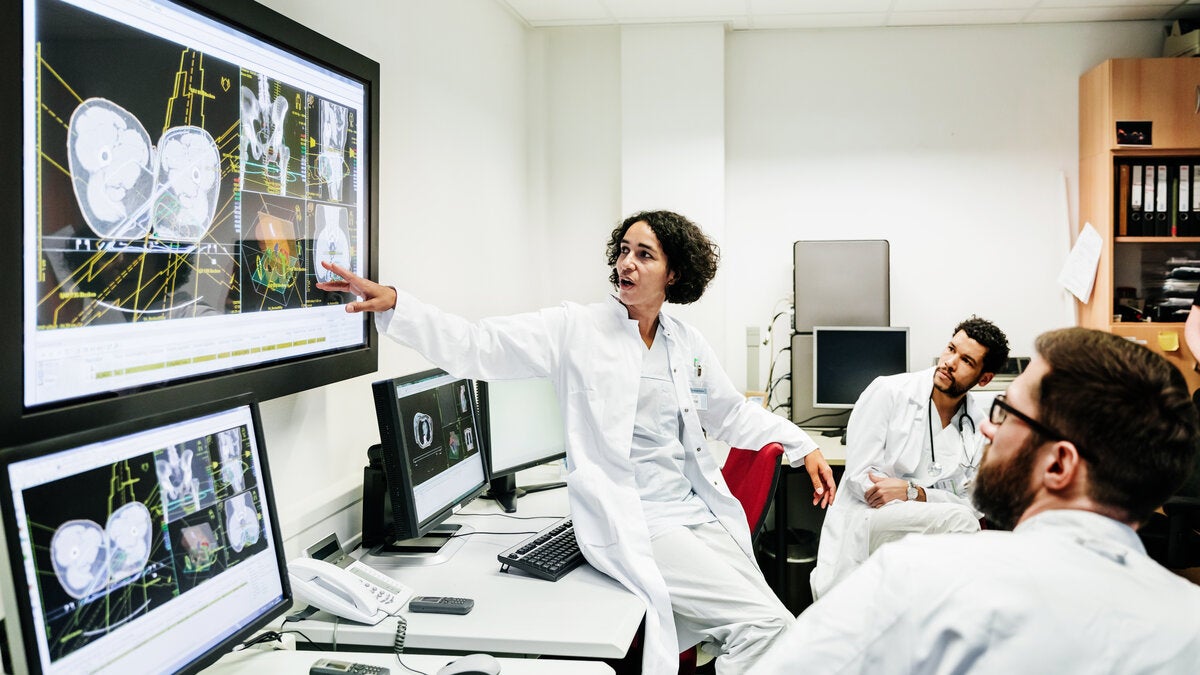
The pandemic, however, has exposed a wider systemic flaw in the way monolithic systems manage and distribute data, which is creating waste, stymying collaboration and, in some cases, costing lives. A lack of interoperability in the first wave of the pandemic, for example, prevented best practice learning being shared quickly and efficiently and sometimes not at all.
Poor integrated data-sharing frameworks between the NHS and care sector systems led to many Covid-positive patients being transferred from hospital to care homes last winter and increasing the spread of the coronavirus.
Creating a cost-effective solution, which dramatically improves interoperability across healthcare systems, is a challenge that Humayun Sheikh, the CEO and founder of Fetch.ai, is using collaborative artificial intelligence (AI) technology to solve.
Fetch.ai works with several industry-leading clients in a myriad of different sectors, including automotive, energy, finance, transport, mobility and travel. But, for the last two years, it has also been working jointly with several public and private hospitals across the globe, gathering datasets to develop AI-driven collective learning solutions.
So, how will Fetch.ai’s collective learning model be a game-changer?
Sheikh, whose chief ambition is to “make machine learning and AI universally accessible”, says, “our preliminary research revealed that large healthcare organisations were using multiple systems, none of which were interoperable. The cost of moving data between them was significant. Our collaborative learning solution, which is now fully operational and ensures the seamless flow of data between systems, can reduce almost 90% of their costs.”
Instead of relying on last generation systems to move the data, Fetch.ai has created a decentralised system which allows the training of machine learning algorithms without requiring that the data be transferred. Using the collective learning system, the algorithm can get the benefits of the bigger global dataset while being trained on smaller localised datasets.
To unlock the true potential of AI, we need to make it accessible to all. Individuals as well as SMEs can immensely benefit from the transformation triggered by collaborative AI
The AI-trained algorithms may create a quick and cost-efficient way of sharing data, but how do they revolutionise healthcare outcomes?
Sheikh, a seed investor and commercial technologist at DeepMind, points to a collective learning experiment, undertaken by Fetch.ai, which used data from chest X-rays to rapidly diagnose whether or not patients have pneumonia or COVID-19.
“The machine learning algorithm that we have created evaluates hundreds of undiagnosed scans,” he says. “The algorithm then learns how to diagnose them, creating a model, which is then shared with other hospitals in the collective learning network. What is ground-breaking is that the hospital can agree on the most effective model and then choose to adopt it, should it wish to.”
If collective learning is widely utilised across the healthcare sector, Sheikh believes that it could potentially herald a radical sea change in how we use diagnostic tools.
“When it first surfaced in December 2019, virologists and frontline medical staff knew very little about how Covid-19 was transmitted, how it spread and how it could be best treated. The more that clinicians across the globe use AI-driven collaborative learning tools, the greater chance they give themselves of uncovering medical breakthroughs in the future.”
“Decentralised health models – that turn centralised paradigms on their head - are the future”, says Sheikh. “The concept is sometimes challenging to grasp but patients don’t need to understand how complex algorithms work. They just need to see that the benefits that collective learning and the AI-centric machine learning algorithms that underpin them, bring to their lives.”
It begs the question too, if data is the ‘oil, or gold of the 21st century’, then what value should we place on artificial intelligence?
Over to you and your researchers, Sheikh…
For more information please visit Fetch.ai
Promoted by Fetch.ai

The pandemic, however, has exposed a wider systemic flaw in the way monolithic systems manage and distribute data, which is creating waste, stymying collaboration and, in some cases, costing lives. A lack of interoperability in the first wave of the pandemic, for example, prevented best practice learning being shared quickly and efficiently and sometimes not at all.
Poor integrated data-sharing frameworks between the NHS and care sector systems led to many Covid-positive patients being transferred from hospital to care homes last winter and increasing the spread of the coronavirus.
Creating a cost-effective solution, which dramatically improves interoperability across healthcare systems, is a challenge that Humayun Sheikh, the CEO and founder of Fetch.ai, is using collaborative artificial intelligence (AI) technology to solve.

